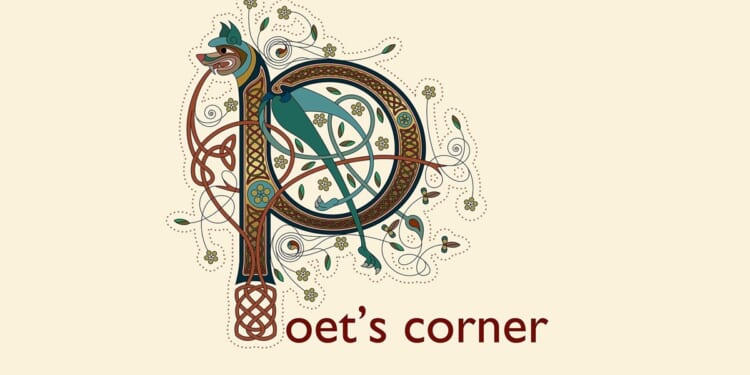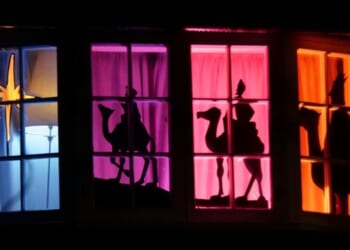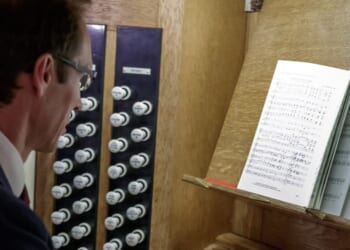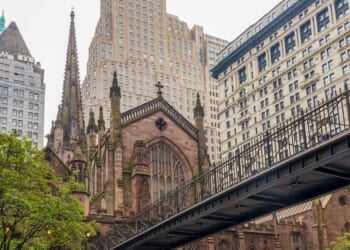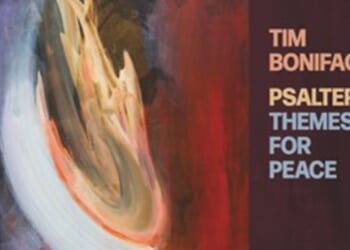I WROTE in a previous column (16 May) about how Maggie and I had visited Glastonbury in May, and I reflected a little on all the legends that gathered round that “storied vale”, and contrasted the stillness, beauty, and Christian witness of the Abbey, even in the midst of ruin, with the plethora of new age jiggery-pokery on the High Street: “The erasure of the Christian element in the stories seems complete in Glastonbury High Street, which appears to consist entirely of wicca, mystic crystals, rune workshops, karmic/cosmic healing, and a general hotchpotch of mystical titbits skimmed off “Eastern” religion, and anything remotely esoteric.”
Some months after that visit with Maggie, I returned to Glastonbury with Stephen Crotts, the illustrator of my forthcoming ballad cycle about the stories of the Holy Grail, so that we could absorb the beauty and atmosphere of the Arthurian places together, as poet and illustrator.
We visited the Abbey, of course, but this time we also climbed the beautiful Tor, crowned by St Michael’s Tower. It features very strongly in my long poem “Merlin’s Isle”, of course; but, while we were there, I felt moved to write a separate little poem, still in the ballad metre, about being there now, in my own person as priest and poet, and not simply as a teller of tales from the past.
I wasn’t sure where the poem would take me, but it turned out to be a reflection not on Arthur, but on the present ecological crisis, and on Romans 8.19 and 20: “For the creation waits with eager longing for the revealing of the children of God; for the creation was subjected to futility, not of its own will but by the will of the one who subjected it, in hope that the creation itself will be set free from its bondage to decay and will obtain the freedom of the glory of the children of God.”
It comes to my mind now, because my friend the singer-songwriter Steve Bell, whom I am visiting in Canada, has turned it into a song. This is how the poem came out:
Glastonbury Tor
Earth rises in a gentle slope
And draws our longing eyes
How tenderly she looks on us
How patiently she waits for us
Our mother most mysterious
Waits to see Christ revealed in us
How longingly she sighs!
And still we turn our back on her
And still we make her wait,
Subject her to futility
And turn her to machinery
And desecrate her mystery
And never heed the prophecy,
“The hour is getting late”.
She welcomes us, we climb the hill
And, sheltered in the Tor,
Gently we take the bread and wine
To taste the human and divine
And touch that time which holds all time
With ordinary awe.

